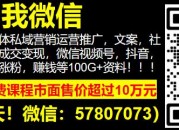免费客户管理系统:免费使用的高效客户管理系统推荐。

随着企业竞争的日益激烈,企业的客户管理越来越受到重视,客户管理系统的需求也逐渐增加。然而,目前市场上大多数的客户管理系统都需要支付昂贵的费用,对于小型企业来说,这是难以承受的负担。
因此,我们推荐一款免费客户管理系统-YetiCRM,它不仅免费,而且易于使用、高效便捷。
YetiCRM是一款基于WEB的管理系统,无需安装任何软件,只需进入官网,注册账号即可。此外,YetiCRM还提供了丰富的客户数据管理功能,例如客户信息管理、销售机会管理、订单管理、合同管理等,大大提高了企业的管理效率。
除此之外,YetiCRM还提供了强大的报表功能,用户可以轻松地生成各种类型的报告,例如销售额统计报告、工作日志等,让企业更好地掌握经营状况、做出决策。
另外,由于YetiCRM具备可定制性和可扩展性,所以企业可以根据自己的需求进行个性化设置,例如添加自定义的流程、自定义字段等,更好地满足企业的实际需求。
最后,YetiCRM采用了全球领先的安全技术,实现了严格的安全控制,保证了用户的数据安全。
总之,YetiCRM是一款免费、高效、易用、可扩展的客户管理系统,适合中小型企业使用。如果你正在寻找一款高效便捷的客户管理系统,那么YetiCRM是你不错的选择,欢迎体验!
系列文章目录 系统功能演示——基于SpringBoot和Vue的后台管理系统项目系列博客(一)Vue2安装并集成ElementUI——基于SpringBoot和Vue的后台管理系统项目系列博客(二)Vue2前端主体框架搭建——基于SpringBoot和Vue的后台管理系统项目系列博客(三)SpringBoot后端初始框架搭建——基于SpringBoot和Vue的后台管理系统项目系列博客(四)SpringBoot集成Mybatis——基于SpringBoot和Vue的后台管理系统项目系列博客(五)SpringBoot实现增删改查——基于SpringBoot和Vue的后台管理系统项目系列博客(六)SpringBoot实现分页查询——基于SpringBoot和Vue的后台管理系统项目系列博客(七)SpringBoot实现集成Mybatis-Plus和SwaggerUI——基于SpringBoot和Vue的后台管理系统项目系列博客(八)Vue实现增删改查——基于SpringBoot和Vue的后台管理系统项目系列博客(九)SpringBoot实现代码生成器——基于SpringBoot和Vue的后台管理系统项目系列博客(十)Vue使用路由——基于SpringBoot和Vue的后台管理系统项目系列博客(十一)SpringBoot和Vue实现导入导出——基于SpringBoot和Vue的后台管理系统项目系列博客(十二)SpringBoot和Vue实现用户登录注册与异常处理——基于SpringBoot和Vue的后台管理系统项目系列博客(十三)SpringBoot和Vue实现用户个人信息展示与保存与集成JWT——基于SpringBoot和Vue的后台管理系统项目系列博客(十四)SpringBoot和Vue实现文件上传与下载——基于SpringBoot和Vue的后台管理系统项目系列博客(十五)SpringBoot和Vue整合ECharts——基于SpringBoot和Vue的后台管理系统项目系列博客(十六)SpringBoot和Vue实现权限菜单功能——基于SpringBoot和Vue的后台管理系统项目系列博客(十七)SpringBoot实现1对1、1对多、多对多关联查询——基于SpringBoot和Vue的后台管理系统项目系列博客(十八)用户前台页面设计与实现——基于SpringBoot和Vue的后台管理系统项目系列博客(十九)SpringBoot集成Redis实现缓存——基于SpringBoot和Vue的后台管理系统项目系列博客(二十)SpringBoot和Vue集成高德地图——基于SpringBoot和Vue的后台管理系统项目系列博客(二十一)SpringBoot和Vue集成视频播放组件——基于SpringBoot和Vue的后台管理系统项目系列博客(二十二)SpringBoot和Vue集成Markdown和多级评论——基于SpringBoot和Vue的后台管理系统项目系列博客(二十三) 项目资源下载 GitHub下载地址Gitee下载地址项目MySql数据库文件
文章目录
前言
今天的主要内容包括:基础环境的搭建、前端头部页面的编写、前端主体页面的编写等,今天的内容学起来会比较轻松,加油!下面就开始今天的学习!
一、基础环境的搭建 首先在views下新建front文件夹

然后在front中新建Home.vue,在其中输入如下的简单内容即可

然后在index.js中给它配个路由

然后来到前端访问,发现可以成功访问到刚才新建的页面。到目前为止我们这里已经脱离了之前的后台框架,也和之前做的前端不在一个框架内,可以认为是两套系统,所以我们接下来要做新的内容了

然后在front内新建Front.vue,并输入以下简单内容

Front.vue作为主路由,然后刚才写的Home.vue作为其子路由,这个就和之前写的Manage.vue和Home.vue一样。所以我们需要在index.js中给其配一个路由

然后来到前端发现可以正常访问

二、前端头部页面的编写 学生角色不应该允许进入后台,而是进入前台系统,只有老师和管理员可以进入后台系统。为了完成这个功能,我们首先在Login.vue中加入如下内容,用来判断不同的角色进入不同的系统

然后我们可以测试一下,发现以“沙僧”学生角色进入的就是前台页面,以“admin”管理员角色进入的就是后台页面


先在这里解决一个小Bug,在Aside.vue中加入如下内容,解决收缩菜单文字不消失的问题

然后此时来到前端发现,侧边栏收缩的时候,文字也消失了

然后随便找一个图片作为我们这个子项目的一个图标,放在assets中

然后将Front.vue中的全部内容替换为如下内容,读者注意图标的地址要换成自己的地址
<template>
<div>
<div style="display: flex; height: 60px; line-height: 60px; border-bottom: 1px solid #eee">
<div style="width: 300px; display: flex; padding-left: 30px">
<div style="width: 60px">
<img src="../../assets/logoSub.png" alt=""
style="width: 50px; position: relative; top: 5px; right: 0">
div>
<div style="flex: 1">欢迎来到xx系统div>
div>
<div style="flex: 1">
<el-menu :default-active="'1'" class="el-menu-demo" mode="horizontal" router>
<el-menu-item index="/front/home">首页el-menu-item>
<el-menu-item>视频播放el-menu-item>
<el-menu-item>文章列表el-menu-item>
<el-submenu index="2">
<template slot="title">我的工作台template>
<el-menu-item>选项1el-menu-item>
<el-menu-item index="2-2">选项2el-menu-item>
<el-menu-item index="2-3">选项3el-menu-item>
<el-submenu index="2-4">
<template slot="title">选项4template>
<el-menu-item index="2-4-1">选项1el-menu-item>
<el-menu-item index="2-4-2">选项2el-menu-item>
<el-menu-item index="2-4-3">选项3el-menu-item>
el-submenu>
el-submenu>
el-menu>
div>
<div style="width: 200px">
<div v-if="!user.username" style="text-align: right; padding-right: 30px">
<el-button @click="$router.push('/login')">登录el-button>
<el-button @click="$router.push('/register')">注册el-button>
div>
<div v-else>
<el-dropdown style="width: 150px; cursor: pointer; text-align: right">
<div style="display: inline-block">
<img :src="user.avatar" alt=""
style="width: 30px; border-radius: 50%; position: relative; top: 10px; right: 5px">
<span>{{ user.nickname }}span><i class="el-icon-arrow-down" style="margin-left: 5px">i>
div>
<el-dropdown-menu slot="dropdown" style="width: 100px; text-align: center">
<el-dropdown-item style="font-size: 14px; padding: 5px 0">
<router-link to="/password" style="text-decoration: none">修改密码router-link>
el-dropdown-item>
<el-dropdown-item style="font-size: 14px; padding: 5px 0">
<router-link to="/person" style="text-decoration: none">个人信息router-link>
el-dropdown-item>
<el-dropdown-item style="font-size: 14px; padding: 5px 0">
<span style="text-decoration: none" @click="logout">退出span>
el-dropdown-item>
el-dropdown-menu>
el-dropdown>
div>
div>
div>
<div style="width: 1000px; margin: 0 auto">
<router-view/>
div>
div>
template>
<script>
export default {
name: "Front",
data() {
return {
user: localStorage.getItem("user") ? JSON.parse(localStorage.getItem("user")) : {}
}
},
created() {
},
methods: {
logout() {
this.$store.commit("logout")
this.$message.success("退出成功")
}
}
}
script>
<style>
.item {
display: inline-block;
width: 100px;
text-align: center;
cursor: pointer
}
.item a {
color: #1E90FF;
}
.item:hover {
background-color: LightPink;
}
style>
此时的子项目主页如下图所示

三、前端主体页面的编写 为了让不登陆的用户也可以访问前台内容,所以我们要对不敏感的数据不设置登陆验证。首先在config中新建一个自定义注解AuthAccess.java,并输入如下内容

然后修改一下拦截器的拦截规则

然后在EchartsController.java中新增如下函数,查询所有的文件

然后将Home.vue中的全部内容替换为如下内容
<template>
<div>
<div style="margin: 10px 0">
<el-carousel height="450px" :interval="10000">
<el-carousel-item v-for="item in imgs" :key="item">
<img :src="item" alt="" style="width: 100%">
el-carousel-item>
el-carousel>
div>
<div style="margin: 10px 0">
<el-row :gutter="10">
<el-col :span="6" v-for="item in files" :key="item.id" style="margin-bottom: 10px">
<div style="border: 1px solid #ccc; padding-bottom: 10px">
<img :src="item.url" alt="" style="width: 100%">
<div style="color: #666; padding: 10px">{{ item.name }}div>
<div style="padding: 10px">
<el-button type="primary">购买el-button>
div>
div>
el-col>
el-row>
div>
div>
template>
<script>
export default {
name: "FrontHome",
data() {
return {
imgs: [
'https://img30.360buyimg.com/babel/s1580x830_jfs/t1/109361/24/22897/74054/621ede58E099d37e3/f12730c81df6046a.jpg!cc_1580x830.webp',
'https://img13.360buyimg.com/babel/s1580x830_jfs/t1/96398/30/23715/70228/6221e9d0Ec1b9fe65/f66e2ad76314d6cd.jpg!cc_1580x830.webp'
],
files: []
}
},
created() {
this.request.get("/echarts/file/front/all").then(res => {
console.log(res.data)
this.files = res.data.filter(v => v.type === 'png' || v.type === 'jpg' || v.type === 'webp')
})
},
methods: {}
}
script>
<style>
style>
然后我们来到前端测试,发现所有功能均完好,即实现了轮播图,又实现了下方的文件展示

总结
以上就是今天学习的全部内容,明天将会给大家带来关于SpringBoot集成Redis实现缓存的相关内容。明天见!







